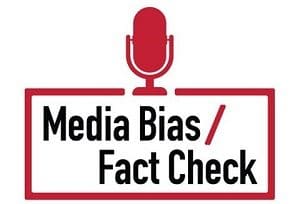Haiti Political Orientation


Government
Government Type: Semi-Presidential Republic
Leader: Prime Minister and Acting President Ariel Henry
Political Party: Independent
Political Position: Center-Left
Press Freedom
MBFC’s Country Freedom Rating: 44.19 – Limited Freedom
World Press Freedom Rank: Haiti 99/180
Reporters Without Borders ranks Haiti 99 among 180 countries regarding press freedom. RSF states that the most critical issues for Journalists are lack of financial resources and difficulty accessing information. Since 2018, reporters have been subject to violence by both police and street protesters. Furthermore, former president Jovenel Moïse’s assassination in 2021 led to greater lawlessness and uncertainty.
Media Ownership and Government Analysis
In Haiti, most media outlets are privately owned, including radio and television. Radio is the most popular news medium. Radio Metropole, Radio Ginen, Radio Signal FM, Radio Caraibes FM, and Radio Kiskeya are among many radio stations.
Le Nouvelliste is the leading daily newspaper. The leading TV stations are Télé Caraïbes, Télé Ginen, and Télé Métropole, which belong to media groups that also own popular radio stations. Télévision Nationale d’Haïti (TNH), RTNH (Radio Télévision Nationale d’Haïti), is a group of state-owned TV stations that are controlled by the Ministry of Communications and acts as a government mouthpiece.
In Haiti, reporters are often subject to police harassment, such as: “The Ministry of Culture and Communication condemns the incident involving an RTVC journalist and police officers.” Also, journalists were subject to violence by gangs in 2022; according to VOA, “Two Haitian journalists were killed while reporting in the Cite Soleil district.”
The assassination of President Jovenel Moïse in 2021; and allegations regarding current acting President Ariel Henry’s links to the assassination have left the country in political turmoil. Therefore, covering news for journalists, especially in Port-au-Prince, which “has been referred to as “ground zero” for warring gangs,” is highly dangerous.
In conclusion, gangs and politicians are strongly connected, resulting in significant press freedom and censorship limitations. Generally, there is chaos and turmoil throughout the country. Due to the ongoing civil unrest, despite a moderate press freedom rating by RSF, Haiti is currently one of the most dangerous and least free places for journalists.
Last Updated on May 12, 2023 by Media Bias Fact Check
Do you appreciate our work? Please consider one of the following ways to sustain us.
or
Left vs. Right Bias: How we rate the bias of media sources
